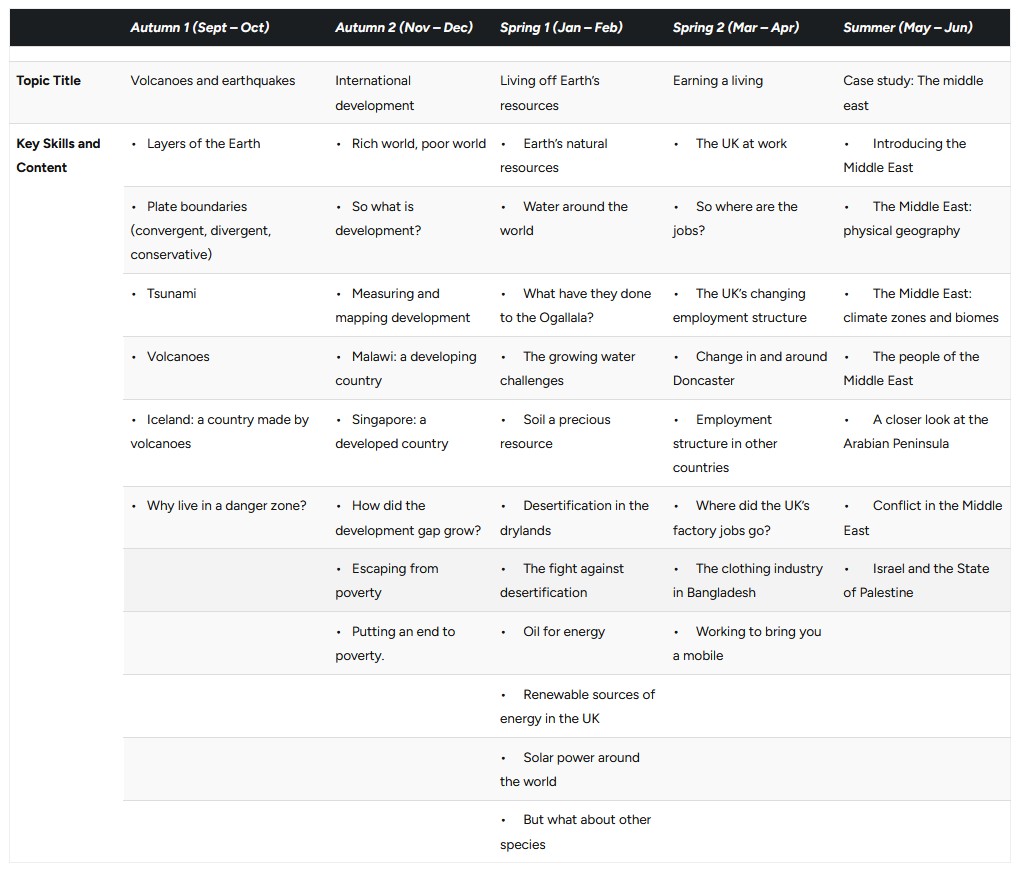| | | | | | |
| Topic Title | | Volcanoes and earthquakes | International development | Living off Earth’s resources | Earning a living | Case study: The middle east |
| Key Skills and Content | | • Layers of the Earth | • Rich world, poor world | • Earth’s natural resources | • The UK at work | • Introducing the Middle East |
| • Plate boundaries (convergent, divergent, conservative) | • So what is development? | • Water around the world | • So where are the jobs? | • The Middle East: physical geography |
| • Tsunami | • Measuring and mapping development | • What have they done to the Ogallala? | • The UK’s changing employment structure | • The Middle East: climate zones and biomes |
| • Volcanoes | • Malawi: a developing country | • The growing water challenges | • Change in and around Doncaster | • The people of the Middle East |
| • Iceland: a country made by volcanoes | • Singapore: a developed country | • Soil a precious resource | • Employment structure in other countries | • A closer look at the Arabian Peninsula |
| • Why live in a danger zone? | • How did the development gap grow? | • Desertification in the drylands | • Where did the UK’s factory jobs go? | • Conflict in the Middle East |
| • Escaping from poverty | • The fight against desertification | • The clothing industry in Bangladesh | • Israel and the State of Palestine |
| • Putting an end to poverty. | • Oil for energy | • Working to bring you a mobile | |
| | • Renewable sources of energy in the UK | | |
| | • Solar power around the world | | |
| | • But what about other species | | |

